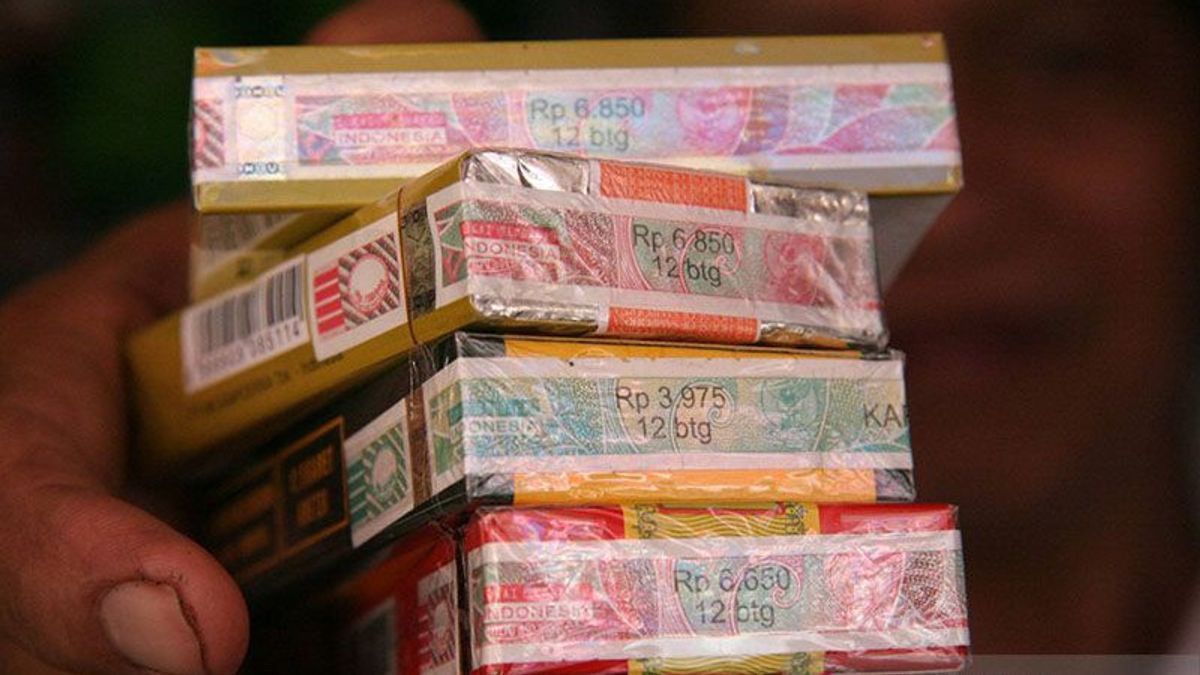YOGYAKARTA Deputy Minister of Finance (Wamenkeu) Suahaasil Nazara gave a 10 percent increase in cigarette excise reasons.
Suahasil said that the decision to increase cigarette excise duty was based on four important aspects.
"We always try to balance this every time we talk about cigarette excise policies and become the philosophical basis for determining cigarette policies every year," he said on Friday, October 4, according to VOI.
As is known, the increase in cigarette excise tax varies, depending on the class. For the Machine Kretek Cigarette category (SKM) class I and II, the average will increase between 11.5 percent to 11.75 percent.
Then the categories of Machine White Cigarettes (SPM) class I and II have an increase of 11 to 12 percent. The category of Food Kretek Cigarettes (SKP) class I, II, and III rose 5 percent.
Meanwhile, the excise tax on e-cigarettes will increase by 15 percent and 6 percent for other tobacco processing products (HPTL) will increase every year from 2023 to 2028.
"Later on, the excise profit-sharing fund will be focused on improving health, such as the facilities of Puskesmas and Posyandu, handling stunting, improving the welfare of farmers and laborers, and eradicating illegal cigarettes," concluded the Deputy Minister of Finance Suahasil.
Suahasil said that the reason the government increased cigarette excise tax was to control consumption which was related to health.
He added that the imposition of excise duty was intended as an effort to control consumption as mandated by the Excise Law.
"This policy is also part of the 2020-2024 National Medium-Term Development Plan (RPJMN) to improve the quality of human resources through a decrease in smoking prevalence to 8.7 percent in 2024," he said.
For information, the imposition of excise duty is also intended to reduce cigarette consumption in the poor group, which reaches 11.6 to 12.2 percent of household spending.
The second reason, said Suahasil, was the increase in cigarette excise to improve the welfare of tobacco farmers and absorb labor.
The excise policy is claimed to have taken into account the impact on tobacco farmers, workers, and the tobacco products industry as a whole.
The cigarette company that produces tobacco products has something to do with employment. Especially for the Indonesian tobacco products industry, which even has a hand-worked segment. There must be something to do with the absorption of our workforce," he said.
The policy of increasing cigarette excise tax is also to increase supervision of illegal excisable goods (BKC).
The higher the cigarette excise tax, the higher the chance of illegal cigarettes circulating, which currently has reached 5.5 percent.
"So it is important that we carry out continuous mitigation, continuously, on policies that have the potential to encourage illegal tobacco products," he asserted.
Excise policy is said to support national development programs through state revenues reaching Rp188.8 trillion in 2021.
Effective Applicable 2023
Minister of Finance (Menkeu) Sri Mulyani Indrawati said the average increase in tobacco excise rates (CHT) by 10 percent had received approval from President Joko Widodo (Jokowi).
The policy of increasing cigarette excise tax was taken after Jokowi and his staff held a limited meeting.
"The president has agreed to increase cigarette excise duty by 10 percent for 2023-2024," said Finance Minister Sri Mulyani after attending a meeting at the Bogor Presidential Palace, West Java, Thursday, November 3, 2022.
According to the Minister of Finance, the President requested that the tariff increase not only apply to CHT, but also to e-cigarettes and other tobacco processing products (HPTL).
It is stated that for e-cigarettes, the increase in excise rates will continue every year for the next five years.
Today it was also decided to increase excise duty from electronic cigarettes, which is an average of 15 percent for e-cigarettes and 6 percent for HTPL. This is true, every year it increases by 15 percent, for the next 5 years," he continued.
This information regarding cigarette excise tax is up 10 percent. In the future, excise profit sharing funds will be focused on improving health, such as the facilities of Puskesmas and Posyandu, handling stunting, improving the welfare of farmers and laborers, and eradicating illegal cigarettes.
The English, Chinese, Japanese, Arabic, and French versions are automatically generated by the AI. So there may still be inaccuracies in translating, please always see Indonesian as our main language. (system supported by DigitalSiber.id)










